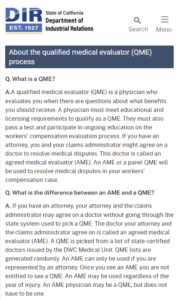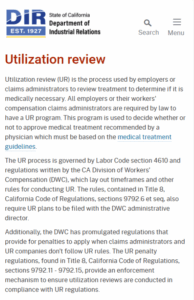What is Maximum Medical Improvement (MMI)?
Maximum Medical Improvement (MMI) is one of the most important milestones in a workers’ compensation case. It means your doctor believes your condition is stable and that further treatment is unlikely to improve it. You may not be fully healed, but your recovery has reached its medical limit.
At Fontes Law Group, we’ve helped injured workers across Southern California understand what MMI really means. It’s a legal turning point, and we work to secure the maximum benefits available under your workers’ compensation claim.
Let’s walk through what MMI means, how it’s determined, and why it matters to anyone navigating California’s workers’ comp system.
What Does MMI Mean in a California Workers’ Comp Case?
According to the California Department of Industrial Relations, your doctor’s MMI report is one of the most important documents in your entire case.
For injured workers in California, MMI means your condition has stabilized. This often signals the end of recovery and the start of decisions about disability, benefits, and returning to work.
Depending on your situation, you may qualify for compensation covering lost wages, medical care, depending on how the injury affects your ability to work going forward.
How Is MMI Determined? 
Only certain doctors can determine MMI under California law. This includes:
- Your primary treating physician
- Qualified Medical Evaluator (QME) assigned by the state
- Agreed Medical Evaluator (AME) if both sides choose a doctor together
The doctor will review your progress, imaging, treatment results, and physical abilities. If they believe your injury has reached a point where further improvement isn’t likely, they’ll declare MMI.
The doctor’s report becomes the basis for all future decisions about your case.
It guides the insurance company, your employer, and the Workers’ Compensation Appeals Board in deciding what benefits you’ll receive. If the report is inaccurate, incomplete, or issued too early, you could lose out on medical care, disability payments, or a fair settlement.
That’s why it’s so important to have legal support when this stage of the case begins.
What Happens After You Reach MMI?
After MMI is declared, your workers’ comp case begins to shift toward resolution. This phase involves key decisions that can impact your income, medical care, and long-term recovery.
Here’s what typically happens next:
Temporary Disability Payments May Stop
If you’ve been receiving temporary disability (TD) payments because you were unable to work, those benefits usually end at MMI. From this point forward, your injury is no longer considered temporary under the law.
You May Be Assigned a Permanent Disability Rating
Your doctor will now evaluate whether your injury caused any lasting limitations. Using state medical guidelines, they’ll assign a Permanent Disability (PD) rating that reflects the extent of your impairment.
This rating is based on several factors, including your job duties, age, medical condition, and how the injury affects your ability to work. It plays a major role in determining how much compensation you may be entitled to receive.
The higher the rating, the more compensation you may be eligible to receive. A lower rating generally means fewer benefits. That’s why it’s so important to make sure the rating accurately reflects the impact your injury has had on your life and your ability to earn a living.
A Settlement May Be Offered
After your rating is determined, the insurance company may propose a settlement.
In California, there are two main types:
- Stipulated Award: You receive regular payments and keep your right to future medical care
- Compromise and Release (C&R): You receive a lump-sum payment but waive your right to future treatment
Before agreeing to anything, it’s crucial to understand the long-term impact of each option.
Can You Dispute an MMI Finding?
Yes. If you believe your condition hasn’t stabilized or your doctor didn’t fully evaluate your symptoms, you can request a second opinion.
California allows injured workers to challenge an MMI report through the QME process. This gives you a chance to be evaluated by a neutral physician from a state-issued panel.
You have limited time to request a QME once you receive the MMI report, so don’t wait.
At Fontes Law Group, we help clients dispute premature MMI findings and push for accurate ratings that reflect the true impact of their injury.
Why MMI Is So Important to Your Case
Once MMI is declared, your case shifts from active treatment to long-term resolution. That means:
- You may stop getting temporary disability checks
- Your doctor will evaluate your permanent restrictions
- Your benefits could be reduced or denied, if your condition is understated
- The insurance company may try to settle quickly
In short, this is a critical window where the wrong move can affect your health, your income, and your future.
How Fontes Law Group Supports You After MMI
We know how overwhelming this stage can be. At Fontes Law Group, we stand with injured workers through every step, from initial treatment to final settlement.
If you’ve reached or are approaching MMI, here’s how we can help:
- Review medical reports to ensure the MMI decision is correct
- Challenge low or inaccurate disability ratings
- Request second opinions from neutral QMEs
- Negotiate fair settlements that cover long-term care and lost earning capacity
- Help secure retraining benefits if you can’t return to your job
Our offices in Santa Ana and Riverside serve clients across Southern California. We’re also proud to offer bilingual legal support in English and Spanish.
Can You Still Get Medical Care After MMI?
Yes, but it becomes harder to access. Once you reach MMI, any new treatment must be reviewed under California’s Utilization Review (UR) process.
- Your doctor must justify any ongoing care
- Insurance can deny treatment they consider unnecessary
- Approvals may take longer, and appeals may be needed
You may still get care for pain management or maintenance, but not for significant improvement.
What If You Can’t Return to Work?
Not every injury allows you to return to your old job, especially if you’ve reached MMI with permanent physical or medical limitations. If your doctor determines that you can no longer perform your previous duties, you may be entitled to additional support through the California workers’ compensation system.
You may qualify for:
- Permanent disability payments
- Supplemental Job Displacement Benefits (SJDB), which offer a $6,000 retraining voucher
- Vocational rehabilitation or support to find a new job
If your employer cannot accommodate your restrictions, these programs can help you transition into a safer or more sustainable career.
Quick Questions and Real Answers
Q: Does MMI mean I’m healed?
No. It means you’ve reached a point where your condition is stable, even if you’re still in pain.
Q: How long after MMI will I receive a settlement?
It depends. If your permanent disability rating is clear and undisputed, it can happen fairly quickly. If there are disagreements, it may take months.
Q: Can I reopen my case if my condition gets worse?
Yes. You can file a Petition to Reopen within five years of the original injury date if your condition significantly worsens.
Q: Do I have to accept the insurance company’s settlement offer?
No. You can negotiate or go to a hearing. Once you sign a settlement, especially a C&R, you likely cannot reopen your case.
Q: Should I hire an attorney after MMI?
In most cases, yes. This is when the legal side becomes complex and permanent decisions are made. An experienced attorney can protect your future.
Bottom Line
Reaching Maximum Medical Improvement is more than just a medical update, it’s a legal shift that changes the course of your entire workers’ comp case. Your benefits, treatment, job prospects, and financial future may all depend on what happens next.
At Fontes Law Group, we’ve helped injured workers across California take control of their cases at every stage, especially after MMI. We understand the system, we know how to fight for fair outcomes, and we’re ready to help you move forward.
Need help after MMI? We’re here for you.
Fontes Law Group offers bilingual legal support in Santa Ana, Riverside, and throughout Southern California. Let’s protect your rights and make sure you get the care and compensation you deserve.

